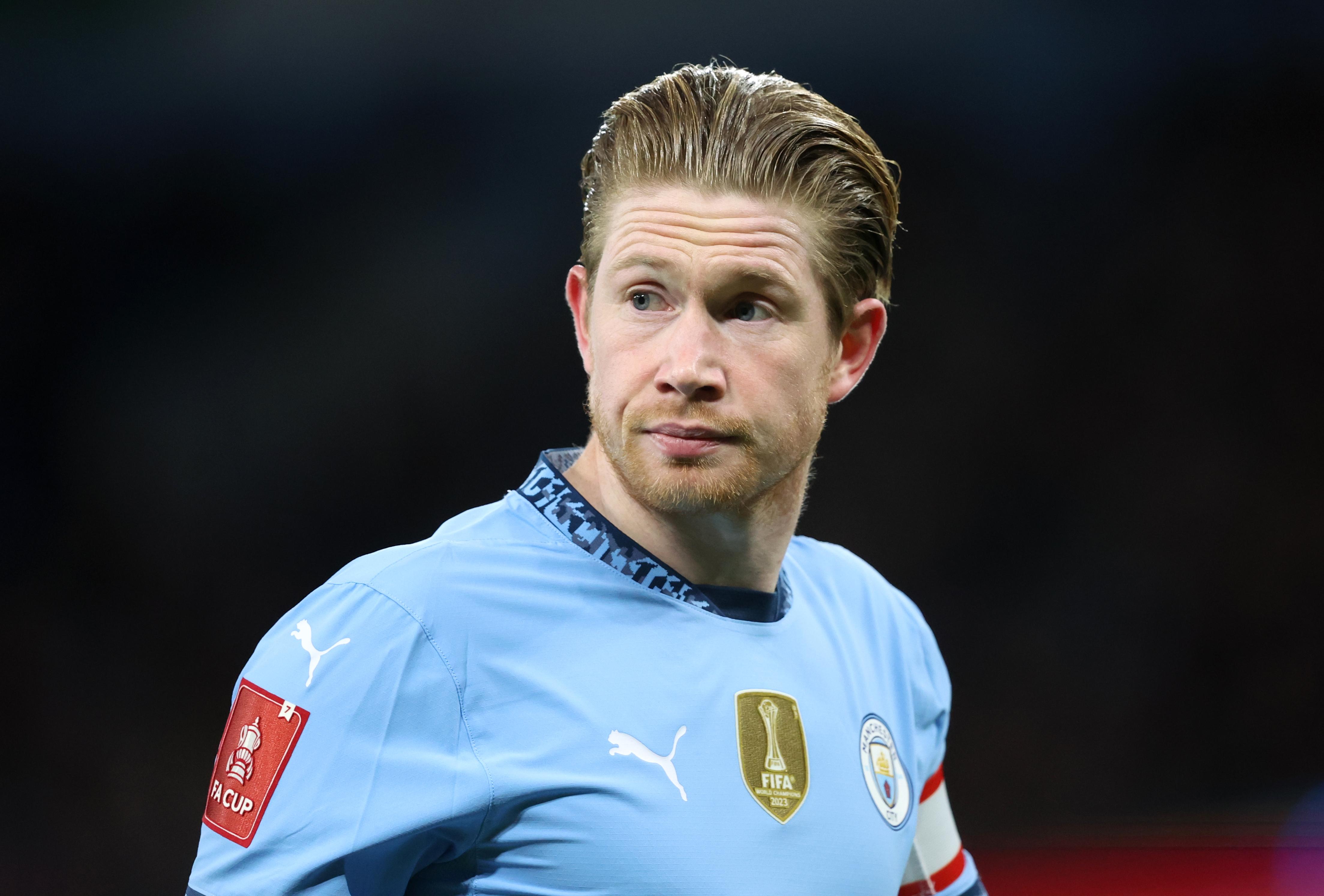Thomas Tuchel: the rise and rage of the Champions League-winning former Chelsea manager
As Thomas Tuchel exits Chelsea after another high-profile sacking, Ed McCambridge charts the German's rocky path which took him to Champions League glory in 2021. Brilliance has often collided with belligerence, to dramatic effect...
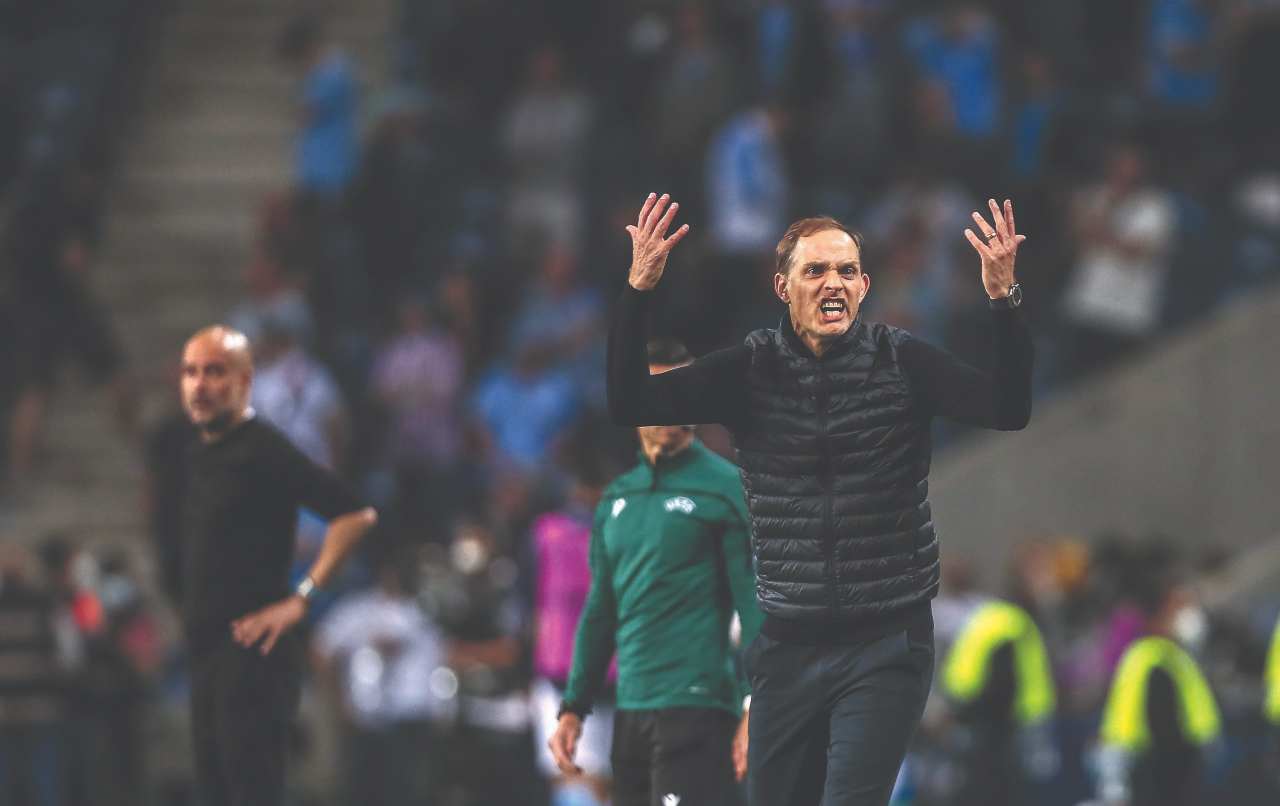
This feature first appeared in the July 2021 issue of FourFourTwo. Subscribe now!
The Strange Case of Dr Jekyll and Mr Hyde tells of a man corrupted by an inner demon – a destructive form of himself that rears its head unexpectedly. Dr Jekyll is intelligent, friendly and agreeable; Mr Hyde the very opposite. And yet they are one.
There are shades of Thomas Tuchel in Robert Louis Stevenson’s infamous character. In a career where the German has risen from crocked lower-league footballer to celebrated Champions League-winning coach with Chelsea, he has also been repeatedly derailed by episodes of antagonistic behaviour.
As a player, Tuchel was described as “exacting and demanding, which didn’t go down well with some of his team-mates” by a former coach. His will to win meant that anyone not pulling his weight was quickly confronted. Yet, when a knee cartilage injury curtailed his playing days, it was Dr Jekyll, not Mr Hyde, who made his first steps into management. There was little sign of his darker side in 2005 when, aged 32, Tuchel went to Cologne to gain his UEFA Pro Licence.
“He didn’t show that side of himself during his time on the course,” Erich Rutemoller, Germany’s assistant manager between 1994 and 2004, and the UEFA course leader in Cologne, tells FFT. “These conflicts only arise when you are thrust into management full-time. But Thomas was clearly intelligent, and a smart coach knows which conflicts to engage in and which not to.”
Check out the Nike Chelsea 21/22 range now
Rutemoller admits to immediately liking Tuchel, a young man with an “excellent academic background”. The prodigy had already earned a degree in sports science, which put him a step ahead of some of the other students.
Get FourFourTwo Newsletter
The best features, fun and footballing quizzes, straight to your inbox every week.
“I got the impression that he would have no trouble with the training, because he already had a good foundation of knowledge and experience built up,” says Rutemoller. “Perhaps because his playing career ended so early, he felt an added motivation to succeed as a coach.”
Tuchel passed with flying colours before returning to his post as Augsburg’s reserve team boss. So impressive was his tactical understanding and meticulous preparation, it wasn’t long before senior football came calling.
King Louis dethroned
In August 2009, newly-promoted Bundesliga club Mainz needed a quick fix. Former coach, Jorn Andersen, had just led Die Nullfunfer back to the top flight, but a 2-1 loss in the first round of the DFB-Pokal against fourth-tier Lubeck, coupled with an ongoing spat about playing style, resulted in the Norwegian's sacking five days before the league kick-off. The quick fix was Tuchel.
“We were shocked to lose Jorn on the eve of a new campaign,” former Mainz defender Nikolce Noveski, who made 348 appearances for the club between 2004 and 2015, recalls to FFT. “We’d been very successful under him. He’d led us to promotion, so we were really disappointed.”
With survival at all costs the season’s target, hiring a manager with no senior experience could have sparked a dressing room riot. Yet Tuchel’s demeanour put minds at ease. “Our first impression of Thomas was that he was very competent,” says Noveski. “He explained his ideas for the season and how he wanted us to play, and placed great emphasis on team spirit. We soon realised that he was a good fit.”
If the initial introductions gave the team a lift, early results compounded it. Mainz went unbeaten in their opening three league matches, securing two draws and a win. The latter in particular, a 2-1 defeat of Louis van Gaal’s Bayern Munich, instilled a belief that they could beat anyone under their new boss.
“I remember before that game, Thomas talked us through exactly what we had to do in the finest detail,” says Noveski. “He played a motivational video in the changing room before we went out onto the pitch. We went out there believing that we could win.”
So perfectly executed was Tuchel’s plan against Bayern, the German football magazine kicker ran an in-depth review of it in their next issue. Rutemoller, Tuchel’s proud mentor back in Cologne, admits to being blown away.
“That wasn’t a lucky result by an underdog, it was a well-executed plan – and against Bayern Munich, no less,” beams Rutemoller. “It was so impressive that I adopted some of those ideas into the courses I run, using it as an example of how to prepare and execute a gameplan to perfection.”
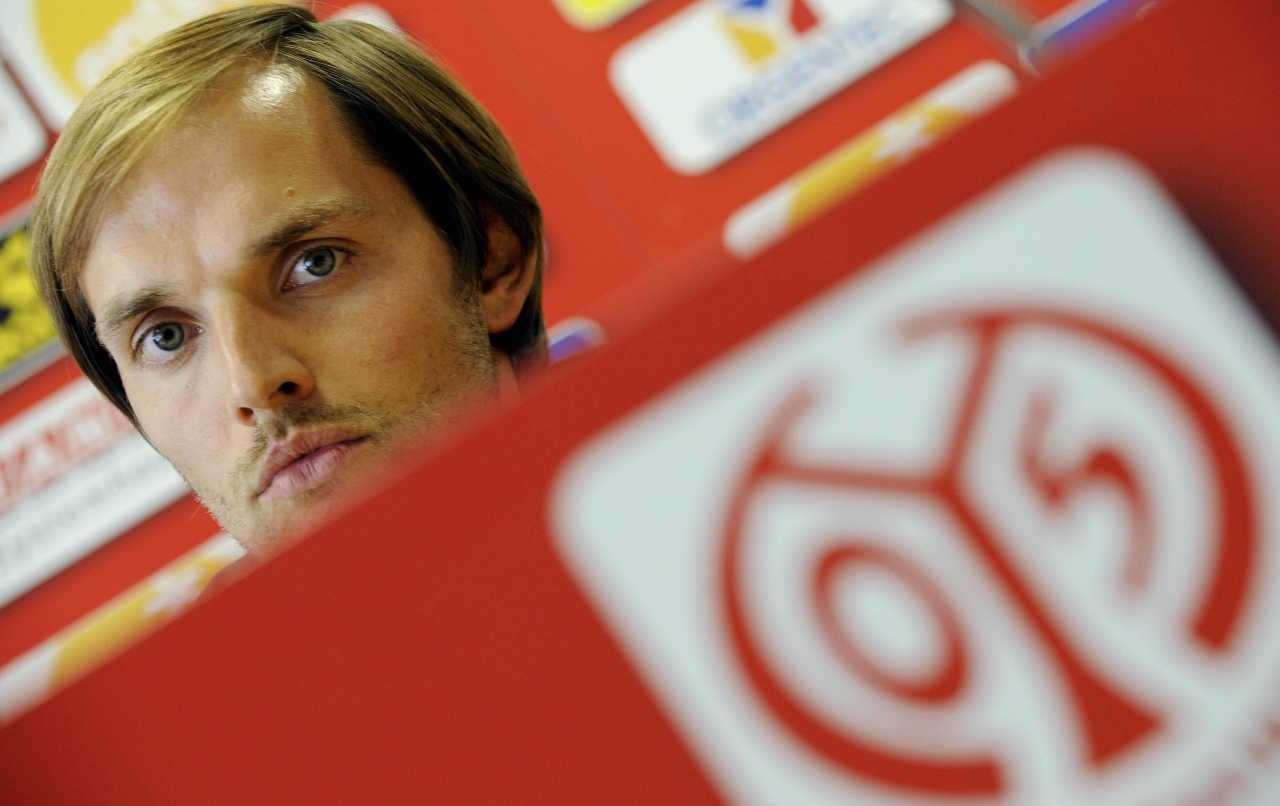
Tuchel’s Mainz weren’t done with big boys yet: by the end of his first season, they had defeated Jurgen Klopp’s Borussia Dortmund, plus Hamburg and Gladbach, to seal a top-half Bundesliga finish for the first time in club history.
Under the guidance of Klopp, in charge before Andersen, Mainz had reached the top flight for the first time in 2004. Yet in three attempts from there, Klopp’s side had never finished higher than 11th. Remarkably, Tuchel had outshone him first time around.
Comparisons were first drawn between the pair during the latter’s debut campaign at Mainz, and remain a source of fascination to fans today. Both started out there before moving to Dortmund, and each has gone on to win the Champions League with an English club.
“They share an incredible passion for the game,” explains Noveski, who played extensively under both. “Klopp was more emotional and his management style reflected that. For him, creating a positive atmosphere was key. Thomas was more interested in the finer details; his preparation for games was unparalleled. In terms of motivation, they were similar. They got the best out of us.”
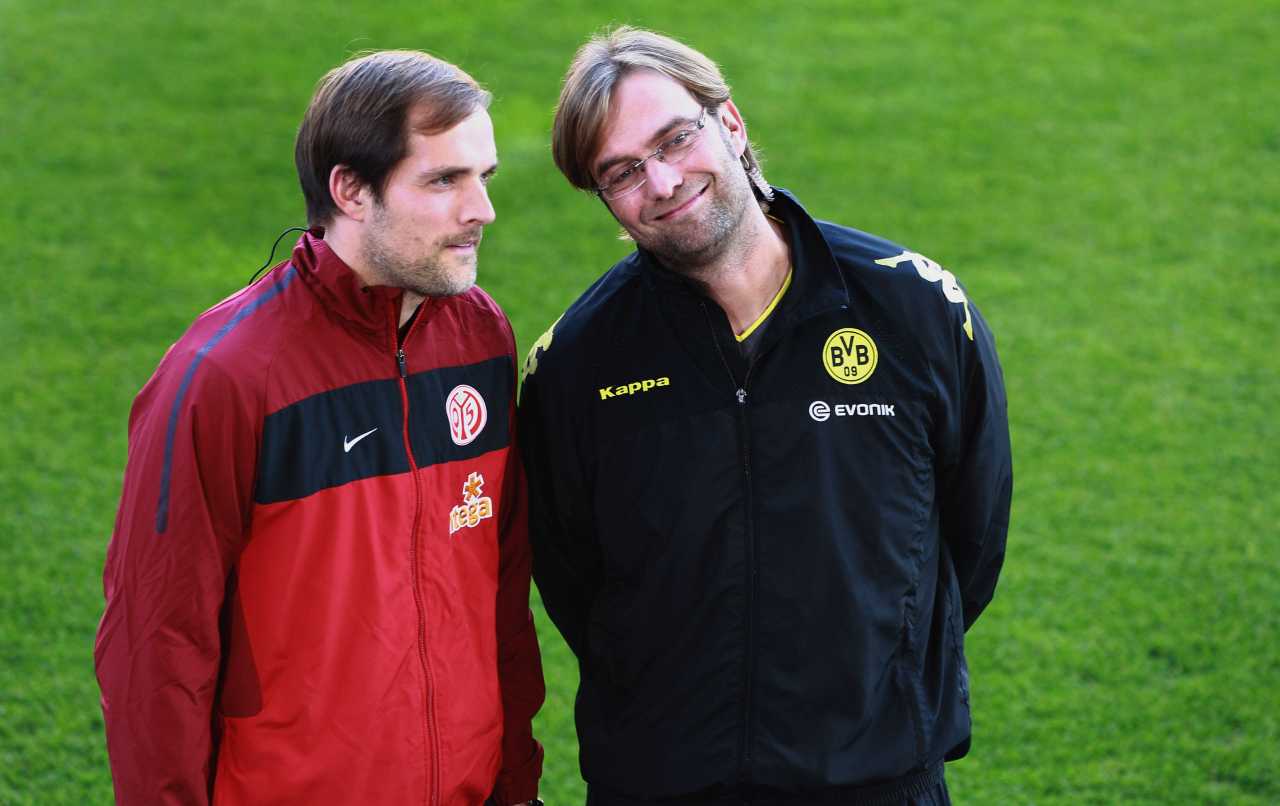
Tuchel continued to wring what he could from Noveski and his team-mates the following season. A squad of budget buys, loan signings and academy products – not least future Chelsea man, Andre Schurrle – did even better in year two. Bayern were dispatched 2-1 again, as Mainz finished fifth and reached the Europa League qualifiers.
While players and fans were fully behind their coach, the same couldn’t be said of the board. Working on a shoestring budget, not even Tuchel’s tactical nous could prevent Mainz finishing a disappointing 13th in 2012. But after he demanded investment to take things forward, key men – including Schurrle – were sold to raise money instead. It led to another 13th-placed finish, as Mr Hyde began to stir from within.
“Tuchel is a perfectionist, and when things aren’t being done exactly as he wants, he isn’t afraid to challenge people,” says Noveski. “He can be direct, and sometimes that can bring you into conflict with people.”
Press conferences grew increasingly narky, with Mainz’s board coming under fire. When it became apparent that funds wouldn’t be released after an impressive finish of seventh in 2013/14, the boss snapped.
“Thomas asked us some time ago to terminate his contract prematurely,” Mainz director of football Christian Heidel revealed after the final game of the season, a 3-2 win against Hamburg. “He doesn’t want to coach the team in 2014/15.”
Tuchel’s players were stunned. “It was a shock, as we were still under the impression that Thomas would be our manager for the foreseeable future,” says Noveski. “He left a big hole at the club when he went. But it was clear that a coach of his ability wouldn’t always stay with Mainz.”
Bomb blasts at BVB
Leaving clubs under a cloud of smoke would become a trademark for Tuchel, who followed Klopp for a second time when he took the reins at Dortmund in the summer of 2015.
Outshining the gurning great had been a realistic target at Mainz, but doing so at Dortmund looked nigh-on impossible – after all, in seven years at the Westfalenstadion, Klopp’s Dortmund had bagged two league titles, the DFB-Pokal and even reached the Champions League final in 2013. Hopes had been lowered after Klopp’s disappointing final year in charge – Dortmund recovered to finish seventh and missed out on Champions League qualification – but there was a teary goodbye to the outgoing gaffer nonetheless.
“Obviously, the sadness was high,” Fussball News editor and host of Borussia Dortmund podcast Yellow Wall, Stefan Buczko, explains. “But the enthusiasm about Tuchel was also pretty big when he was appointed – fans saw him as the best man to succeed Klopp.”
Few supporters could argue that fresh ideas weren’t required, and Tuchel’s tweaks had an immediate impact: Dortmund kicked off the campaign with five wins, going seven games unbeaten. But an early-season 5-1 shellacking against the might of Bayern set the tone for Tuchel’s tenure.
“Immediately, Dortmund were much more comfortable with the ball and weren’t quite so gung-ho every time they won it back,” reveals Buczko. “Tactically the team became a bit more flexible too, and could play a bit more confidently with the back three – something you hardly ever saw under Klopp.
“They weren’t good enough to challenge Bayern, but that was largely down to the fact that Pep Guardiola was coach during that period. They were incredibly dominant.”
Former Dortmund midfielder Gonzalo Castro confirms the tactical variance. “Under Tuchel, our job was to hold our positions and be patient,” he tells FFT. “Our goal was always to move the opponent side to side, so we could work the space for [Pierre-Emerick] Aubameyang to finish. Off the ball, we tried to condense the centre and force the opponent wide, where it’s harder to score. That was key for Tuchel, as he didn’t want us to concede centrally. He organised everything precisely, down to the last millimetre in training.”
Dortmund ultimately finished 10 points off the champions in Tuchel’s first season, and were dumped out of the Europa League quarter-finals by Klopp’s Liverpool. It was an acceptable debut year for the new coach – but cracks were already beginning to show.
During Tuchel’s first season, chief scout Sven Mislintat – later of Arsenal – was fixing a move for Spanish midfielder Oliver Torres. Tuchel, who didn’t have a direct influence over transfers at the club, flat out disagreed.
“When the transfer was pretty much being finalised, Tuchel admitted he didn’t want the player,” explains Buczko. “There was a huge falling-out, which eventually manifested itself in Tuchel reportedly banning Mislintat from the training ground. I think that dispute initiated Mislintat’s later exit, because he didn’t feel welcome at the club any more.”
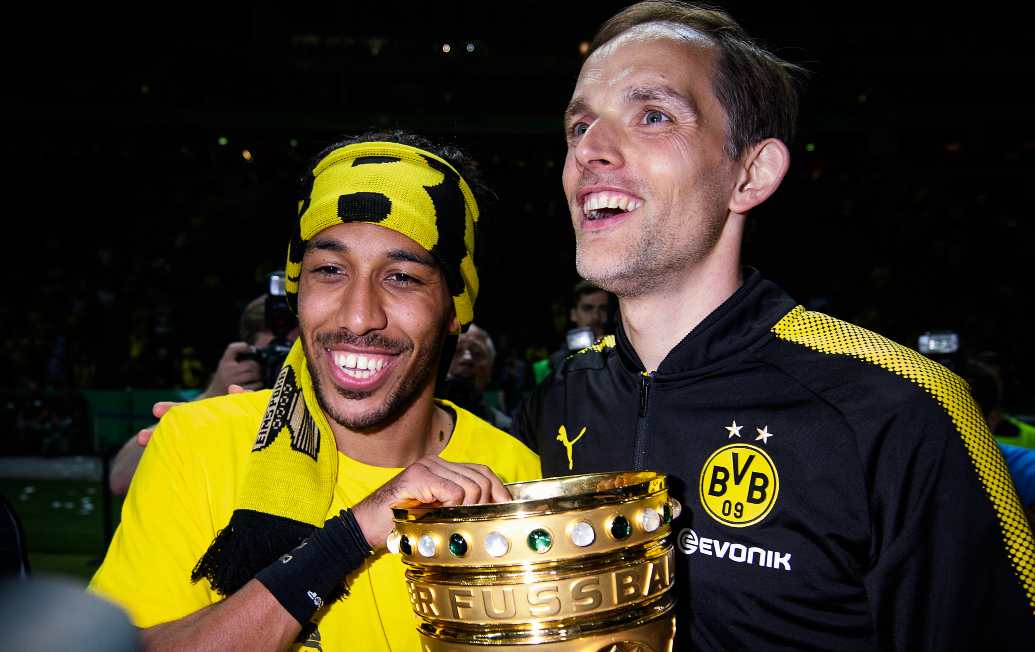
The summer brought a squad overhaul, as Mats Hummels, Ilkay Gundogan and Henrikh Mkhitaryan were replaced in the squad by Ousmane Dembele, Marc Bartra and Raphael Guerreiro. Alongside Christian Pulisic and Pierre-Emerick Aubameyang, the new men transformed Dortmund into a lightning-fast attacking unit. A breathtaking 3-2 win over Bayern Munich in the 2016-17 DFB-Pokal semi-finals provided the most exhilarating example for fans to savour; the Bavarians had sauntered towards another league title, but Tuchel earned a shot at silverware in his second season as Dortmund coach.
Yet just two weeks before that giddy win over Bayern, an event of seismic proportions had shaken the club – and set off a chain reaction which would see Tuchel fired in the coming months.
In early April 2017, Dortmund’s team bus was the target of a roadside pipe bomb attack en route to a home Champions League knockout clash with Monaco. The perpetrator had been attempting to drive down Dortmund’s share price in a baffling get-rich-quick scheme, like something from a Coen Brothers movie. ‘Sergej W’ was later charged with 28 counts of attempted murder – had it not been for the vehicle’s reinforced glass windows, the ‘attempted’ element may have been absent from his charge sheet. A police officer and defender Bartra were the ‘only’ two injured, yet the psychological impact upon those on board was of greater significance.
The decision to restage the Monaco game just a day later remains a bone of contention at the club – and not because Dortmund lost. “It was reported that Tuchel told his players he wanted to play the game the next day,” recalls Buczko. “But publicly he said he didn’t want that, and UEFA was forcing them to. That caused a lot of resentment towards him from both players and board members.”
While court cases rumbled on behind the scenes, there was at least some cause for celebration that season – Dortmund won the 2017 DFB-Pokal with a 2-1 victory over Eintracht Frankfurt. But it would prove to be Tuchel’s final match in charge.
The German was sacked at the end of the campaign; Dortmund insisted the decision had nothing to do with personal matters, but CEO Hans-Joachim Watzke later claimed the parties “broke up because it just didn’t fit”, before adding, “Thomas is a fantastic coach, but he’s a difficult person.” As Buczko says, “He was liked but never loved by fans.”
Ultimately, Mr Hyde appeared to have cost Dr Jekyll another job.
The Paris disagreement
Despite Tuchel’s growing reputation for attracting trouble, his appointment at Paris Saint-Germain in May 2018 appeared to be based on that strength of character.
At his unveiling, PSG president Nasser Al-Khelaifi talked up the German’s “strong principles” as well as his coaching ability, having seen his club fail to navigate beyond the Champions League quarter-finals for six years running.
Crucially, Tuchel was seen as a disciplinarian who could stamp his authority on a squad of difficult personalities. A story from his Mainz days goes that he didn’t allow his players to leave the canteen table while others were still eating – something he personally thought to be ill-mannered. In Paris, Tuchel opted for a softer approach.
“At PSG, you have to forge a good bond with the players – especially Kylian Mbappe and Neymar,” Pierre-Etienne Minonzio, writer at L’Equipe, tells FFT. “They are the real bosses of the club, so you have to find that balance between getting a relationship with them, but also asking them to do the things you want as a manager.”
Getting Neymar to arrive punctually for training and go to bed at a sensible hour would be one thing – all-night poker sessions at the Brazilian’s mansion remain legendary – but getting the world’s record signing to buy into a tactical system was another.
“Tuchel’s style is about counter-pressing, so you need players who are willing to run a lot and put in the defensive effort,” says Minonzio. “It simply won’t work with eight players doing it. You need everyone – and that includes Neymar.”
At the time of Tuchel’s arrival, PSG had won five of the previous six Ligue 1 titles. Delivering on all domestic fronts was par for the course, though – everyone knew the capital club’s real ambitions rested with Europe.
Tuchel’s first season in Paris was, therefore, a failure. PSG cantered to the 2018/19 Ligue 1 title by 16 points, but lost the Coupe de France final to Rennes, went out in the quarter-finals of the Coupe de la Ligue against bottom side Guingamp, and capitulated at home to Manchester United in the Champions League last 16 after blowing a 3-1 aggregate lead.
As ever, spending was the answer: some €95 million worth of talent arrived in the summer of 2019, including combative midfielders Idrissa Gueye and Ander Herrera. Those new recruits had the desired effect, allowing the likes of Neymar, Mbappe and Mauro Icardi to focus on what they do best: scoring goals. PSG immediately looked more streetwise, especially in Europe, as they topped a tough group including Real Madrid before disposing of Tuchel’s former club Dortmund in the second round.
“He managed to get that balance right for a long time, over the course of a whole season,” says Minonzio. “Especially in the Champions League. PSG looked great going forward and far more assured at the back.”
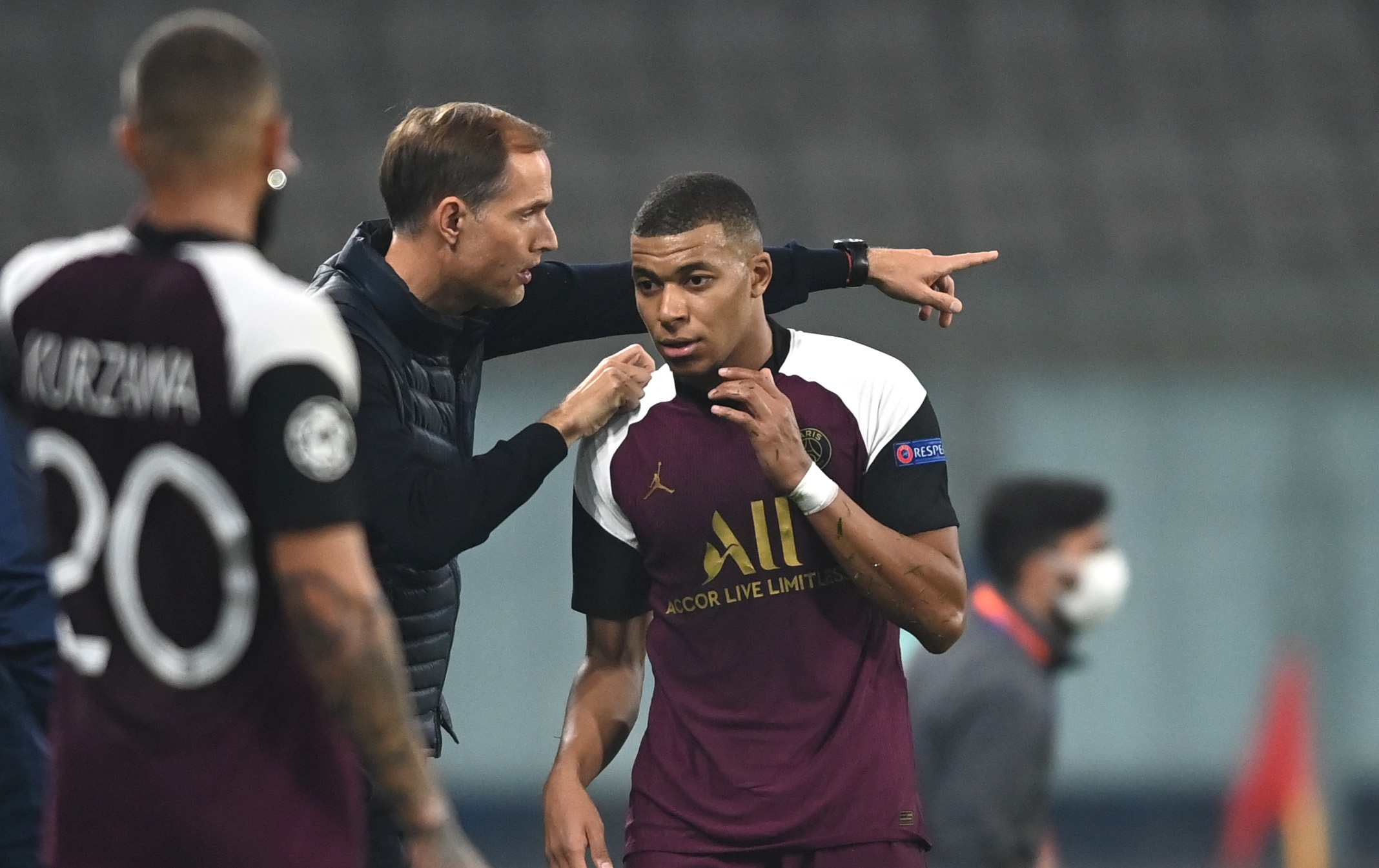
When Ligue 1 was curtailed by the global pandemic in March 2020, PSG were awarded the title on a points-per-game basis. While other nations contrived to finish their league campaigns following June’s restart, the Parisians had the luxury of being able to focus exclusively on the Champions League’s latter stages when they returned in August.
It looked that way, too: star duo Neymar and Mbappe dazzled as Atalanta were seen off in the quarter-finals and RB Leipzig in the semis, setting up a final showdown against Bayern Munich. Tuchel’s steely entertainers were on the brink of something no PSG side had managed in their history.
Sadly, it wasn’t to be. A cagey affair was settled by a header from Kingsley Coman, the French winger who, ironically, had come through PSG’s academy. As Neymar sobbed after the final whistle, Tuchel wouldn’t have known then that this would be his last opportunity to win a Champions League with the club.
“After that game, everything changed,” remembers Minonzio.
Over the summer, Mr Hyde again reared his ugly head. Icardi’s loan had been converted to a permanent €50m transfer from Inter, yet Tuchel seethed at the club letting Edinson Cavani and Thiago Silva run their contracts down. “We lose too many players on free transfers,” he snapped in October, after the season’s kick-off. “It’s too much. We can’t ask this squad the same thing as we did last season.”
Sporting director Leonardo admonished Tuchel for his comments, warning him “to respect the people above you”. For Minonzio, this simple exchange was the beginning of the end for their relationship.
“Tuchel started making some provocative statements to the press,” he explains. “He criticised the club over the transfer window, he criticised the board and he criticised Leonardo. You can’t do that. There are clubs where you can have open debates, but at PSG with Qatar, that’s not possible. When he started doing that, it was over.”
It was over, officially, on December 29 – but Minonzio believes the dressing room had been lost long before the announcement.
“He initially managed to implement his tactics at PSG, but long-term, he struggled to get the players on board in the way he has elsewhere in his career,” he says. “Neymar, Mbappe and others weren’t willing to run as much as he wanted them to after a point.
“But overall, it was a success because he won titles and managed to get PSG to the Champions League final. Nobody had done that before. For that reason alone, he has to be considered one of the most successful managers in PSG history.”
As it turned out, though, European success wasn’t far away for Tuchel – just not in Paris.
Blue skies ahead
When the Bavarian replaced fan favourite Frank Lampard as Chelsea’s new manager in January 2021, the Blues were ninth in the Premier League table.
In just a few short months, however, Tuchel somehow managed to morph his struggling side into stubborn opponents, culminating in their top-four finish, FA Cup final appearance and shock Champions League triumph.
“When you win the Champions League final, there isn’t much that can top that,” says Erich Rutemoller. “He’s worked for some of the biggest clubs in the game: Dortmund, PSG and now Chelsea. He is undoubtedly a top coach, and has a really bright future ahead of him.”
“He was already very highly rated,” agrees former Mainz centre-back Noveski. “But that Champions League win has elevated him into the top bracket.”
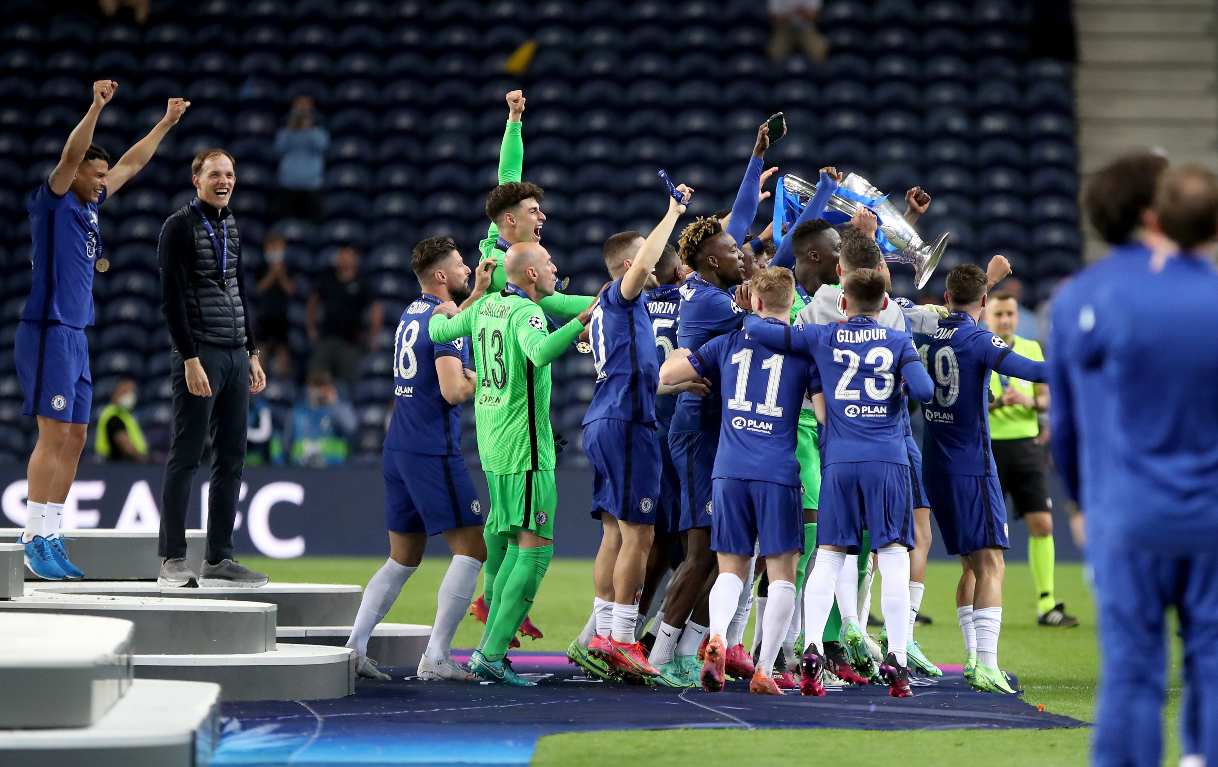
Such has been Tuchel’s impact in west London that the Blues are already being talked up as serious title rivals to Manchester City this season – the side they beat three times in all competitions from mid-April. It figures: in the German’s 19 league matches, Chelsea kept 11 clean sheets and leaked only 13 goals. With the likes of Timo Werner and Kai Havertz set to grow into their second campaigns at Stamford Bridge, the future looks genuinely exciting.
That’s providing the manager and his club can keep the peace, of course. Tuchel doesn’t forget. Amid his end-of-season success, the tactician couldn’t resist a little dig at PSG when asked whether reaching successive Champions League finals meant he must be doing something right. He paused, before grinning knowingly, “Or not, because it’s not with the same club. It depends who you ask.”
Even in the happiest of times, it seems Mr Hyde is never lurking far away.
Subscribe to FourFourTwo today and get three issues delivered for just £3. The offer ends October 17, 2021.
Restock your kit bag with the best deals for footballers on Amazon right now
READ NEXT
RICH JOLLY How to beat Bielsa: Why Leeds United's biggest weakness lies in their 'spare man' system
RANKED! Every Premier League kit this season from worst to best
GUIDE FIFA 22 news: Pre-order now – plus release date, cover, trailer and everything else we know so far
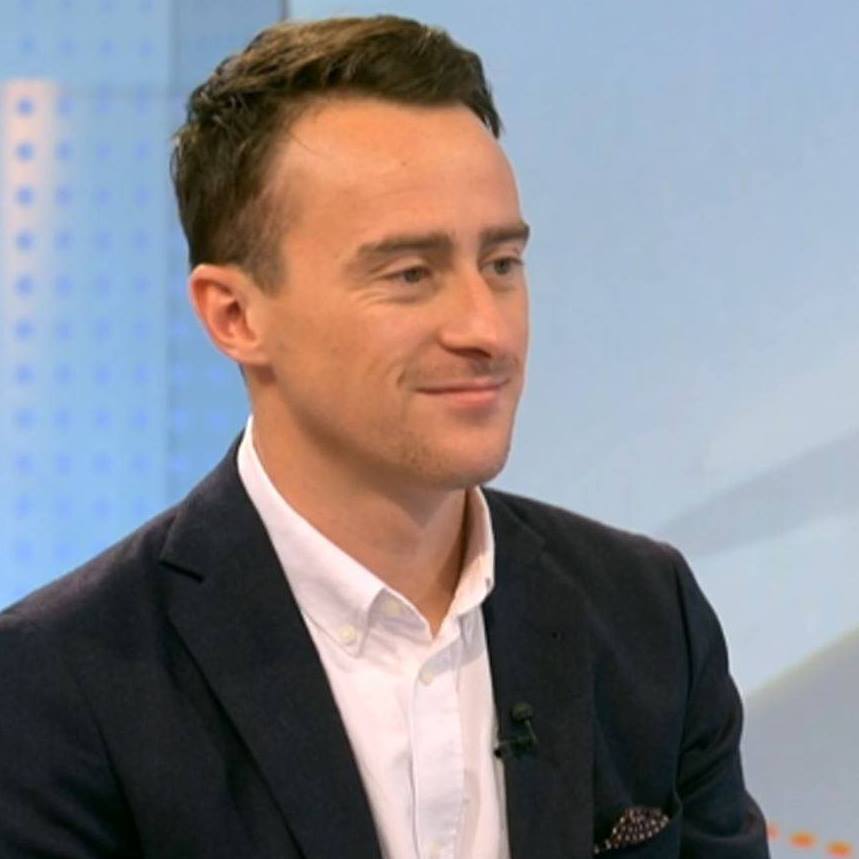
Ed is a staff writer at FourFourTwo, working across the magazine and website. A German speaker, he’s been working as a football reporter in Berlin since 2015, predominantly covering the Bundesliga and Germany's national team. Favourite FFT features include an exclusive interview with Jude Bellingham following the youngster’s move to Borussia Dortmund in 2020, a history of the Berlin Derby since the fall of the Wall and a celebration of Kevin Keegan’s playing career.
